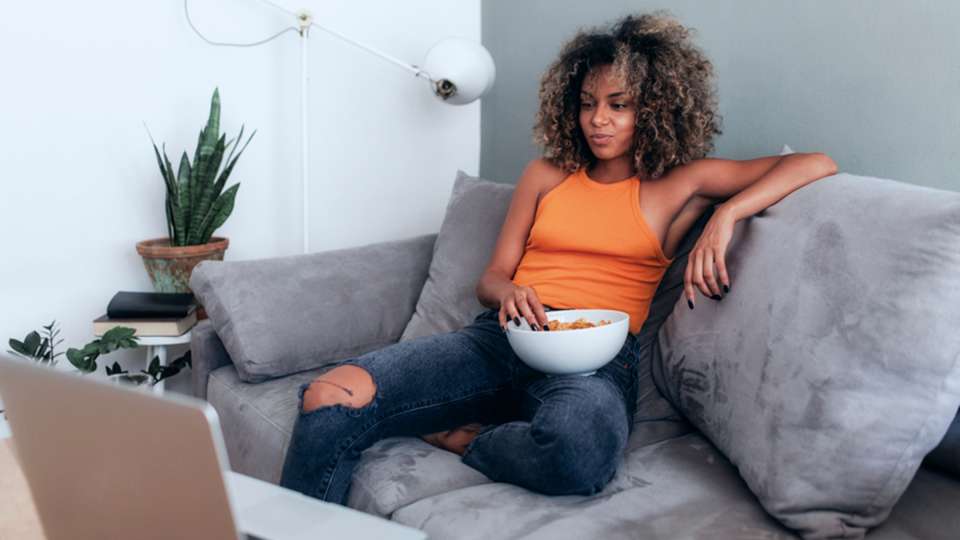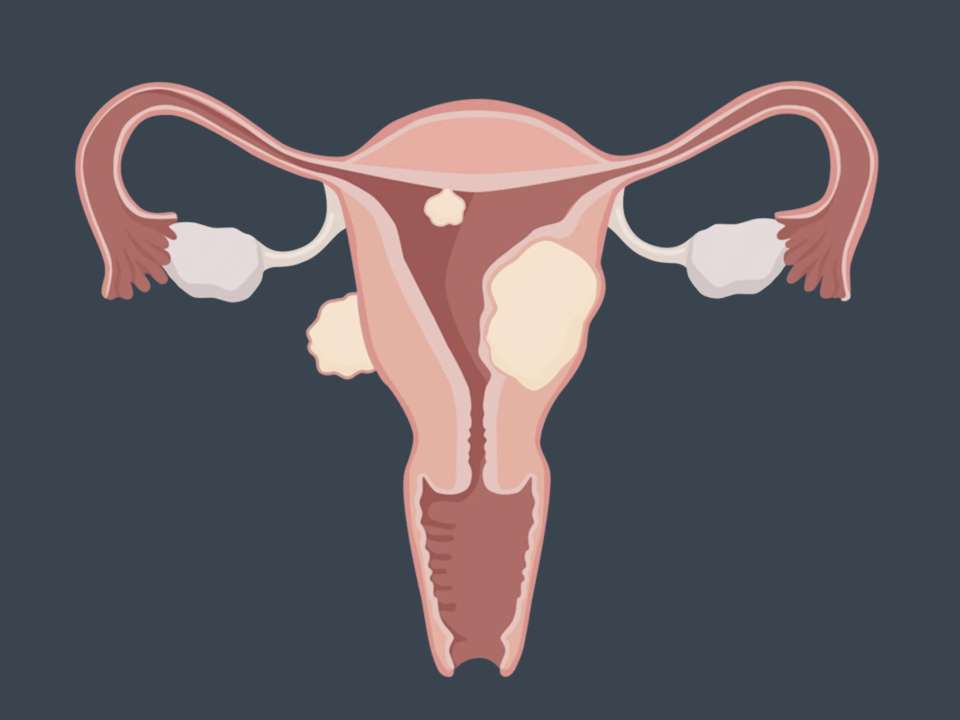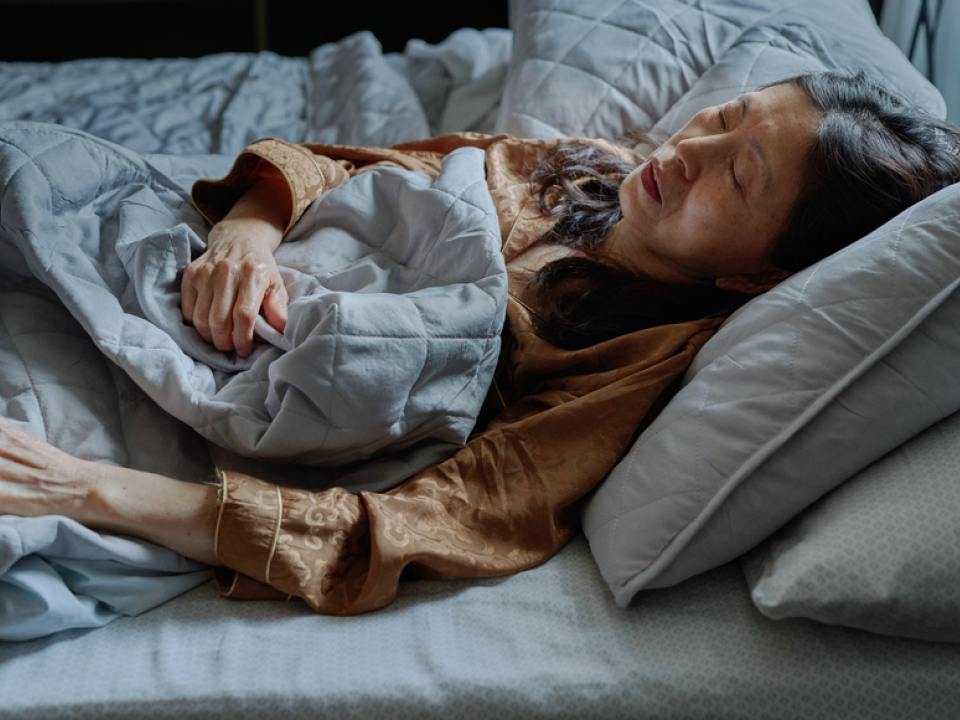
From working late into the evening to drinking one too many quarantinis, many of us picked up some less-than-healthy habits during lockdown.
It’s both understandable and OK if this is the case for you, so try to be gentle with yourself and appreciate the fact that you are doing the best you can to move through this stressful time.
If you are looking to change up some habits, the good news is you don’t need to do a complete 180 to be a little healthier. Making small, mindful changes can go a long way toward building new behaviors.
Unhealthy lockdown habit: staying up late
With routines changing, increased stress and the loss of structured schedules, it’s no surprise that many people are struggling to catch enough z’s. But a lack of sleep can harm your health.
“We spend a third of our lives sleeping, so it’s not a stretch to say when sleep is compromised, it’s going to impact nearly every aspect of someone’s ability to function to some extent or another,” says Dr. Nathaniel Watson, the director of Harborview Medical Center’s Sleep Clinic.
Watson notes the key to better sleep is maintaining a consistent sleep schedule.
Even if you are currently out of work or do not have a specific time you have to get up, try to wake up, go to bed and eat meals at roughly the same time every day. This will help regulate your circadian rhythm, the internal system that cues your body to feel sleepy at night and awake in the morning.
If you’ve gotten out of the habit, you can give yourself a gentle nudge by setting an alarm 30 minutes before you want to go to bed. This way, you’ll have a reminder to start winding down for the night — and the time to do so.
Other habits that help prime your body for sleep include practicing mindfulness, exercising or writing down any thoughts before you go to bed. If you find yourself lying in bed trying to fall asleep for a while, roughly 20 minutes or so, it can also help to get up and do a calming activity like reading or coloring, before returning to bed.
All that said, don’t sweat it if you have a bad night’s sleep every now and then.
“It’s going to be a gradual process,” Watson says. “You have to commit yourself and set your expectations appropriately.”
Unhealthy lockdown habit: working too much
While it may feel productive to work a couple extra hours each day, this habit is a recipe for burnout.
Sarah Albaum, a board-certified nurse practitioner at the UW Neighborhood South Lake Union Clinic, recommends taking a moment to be real with yourself and consider how productive you actually are on these long days.
In all likelihood, if you’re consistently working 10-plus-hours per day, there are stretches when you aren’t getting a whole lot done.
“The best thing you can do is condense the time down and pick when you are going to work as well as give yourself a cut off time,” Albaum says.
You can let loved ones, roommates and co-workers know the hours you plan to be online — as well as when you plan to be done for the day — which will help with transparency and accountability.
Another way to set boundaries is to find a way to mark the transition from work to personal time (even if you’re working from home). Maybe you go for a walk, do some stretches and deep breathing, or listen to your favorite song and dance it out in the kitchen.
Whatever you choose, the idea is to pick an activity that you enjoy and look forward to that will help signal the end of your workday so that your mind and body can relax as you go into the evening.
Unhealthy lockdown habit: eating too much or not enough
Food is a fact of life, albeit one that can feel complicated and tied up with a lot of emotions.
“We all need to eat, need nutritious food and should eat food that we enjoy,” says Judy Simon, a registered dietitian nutritionist at the Nutrition Clinic at University of Washington Medical Center – Roosevelt.
One way to be more thoughtful with food is to make your meals an activity. Meal prepping helps you select fruits, veggies and whole grains you enjoy, and cooking meals with the people you live with (or loved ones via video chat) turns mealtime into a bonding experience.
It’s also important to avoid shaming yourself for your eating habits or labeling food as either “good” or “bad.”
To be a bit more mindful, Simon recommends eating meals as a family when possible and trying to give your full attention to the taste, smell and experience of the meal. (No, checking emails on your phone between bites doesn’t count.)
For those with a sweet tooth, adding naturally sweeter foods like fruit can be a healthier substitute for processed, prepackaged sweets. Similarly, swapping takeout for a minimally prepared grocery store meal with protein and veggies can be a healthier option when you don’t feel like cooking.
“I think this is a great opportunity for people who are ready to work on small steps,” Simon says. “Maybe try one healthier recipe a week. You don’t have to feel like you have to do a 100% makeover.”
Unhealthy lockdown habit: too much couch time
If you’re in a no-exercise rut, try to shift your perspective from what workouts you feel you “should be” doing to movement you actually enjoy.
For example, if you hate running in the rain, forcing yourself to get up for a winter morning jog isn’t going to be sustainable. Instead, try indoor cardio exercises, like an online Zumba class that you can do in your living room.
Taking into account what you like can help you make a mental shift from dreading working out to viewing exercise as time you set aside for yourself that is playful, fulfilling and fun.
It’s also helpful to set realistic and attainable goals for yourself, Albaum notes.
You don’t need to become a weightlifting champ or marathoner to get health benefits from moving your body. Start small and give yourself credit for the work you are putting in.
“It takes two weeks of consistent activity to form a mild habit,” Albaum says. “Pick something you can stick with and will do regularly rather than diving head-first into something extremely challenging that isn’t sustainable and increases your risk of injury.”
Unhealthy lockdown habit: drinking too much
Since the start of the pandemic, online sales of alcohol have increased 262%, so you’re not alone if you’ve found yourself drinking more than usual.
If you’re wondering if your quarantine drinking is unhealthy, Kevin Hallgren, a clinical psychologist who sees patients at Harborview Medical Center, recommends starting by checking in with yourself.
“Pay attention to what is going on and ask yourself, ‘How much am I drinking and how do I feel after I drink?’” Hallgren says.
One way to do this is simply keep track of how much and how often you are drinking. Just the practice of noticing your consumption and reflecting on how it makes you feel can make a difference.
For those who are looking to make a change, it can also help to get concrete and think about the specific reason you are drinking, be it stress relief or a desire for heightened social interaction.
“Before you start to drink, check in to see if it’s something you really want in that moment or it’s something you are turning to out of habit,” Hallgren says.
You can also mitigate some long-term effects of increased alcohol consumption by alternating between an alcoholic beverage and a glass of water, eating a meal with your beverage, and switching to a different fun drink with a low or no alcohol content.
There’s also help available if you need it. Friends, mental health professionals and even peers from anonymous call lines are available to listen and provide support.
“Sometimes a small change can have a huge effect,” Hallgren says. “A small change can promote better health, less anxiety, less depression and better quality of life. It’s not an all or nothing thing, there’s room for granularity and room for choice.”
The bottom line
Small shifts make a difference.
Regardless of the habit you hope to change, pausing and giving yourself a moment to think about your routine behaviors allows you the chance to be more intentional about what you do on the daily.
With a bit of time and some mindfulness, you can build healthier and sustainable habits.

 Healthy ideas for your inbox
Healthy ideas for your inbox





